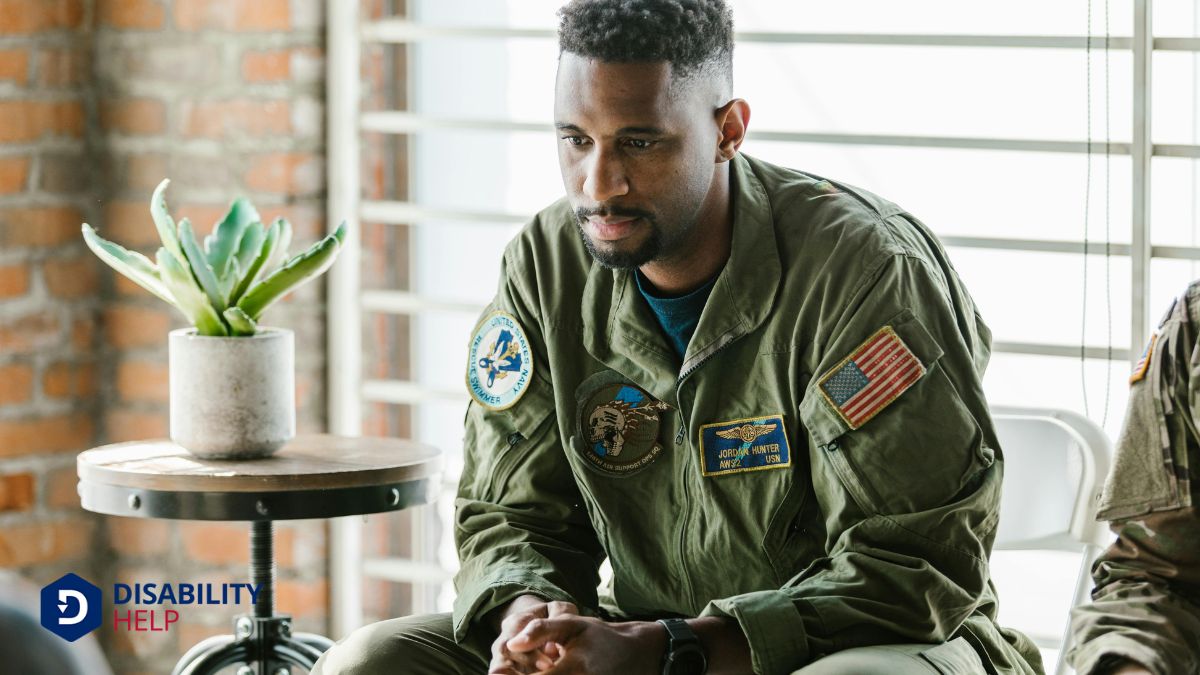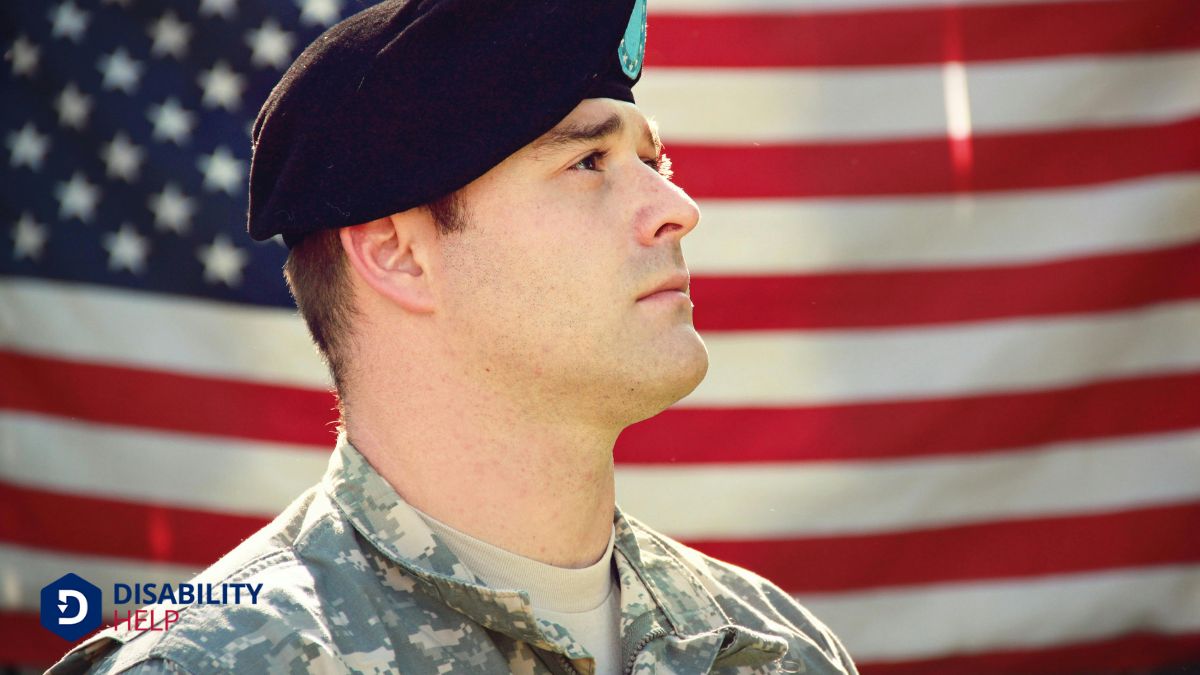The term "veteran" comes from the Latin word "veteranus," meaning someone experienced and wise, with roots in ancient times. Originally, it described individuals with long-term experience, highlighting their maturity and skills. Over time, this term became synonymous with soldiers, first seen in places like Ancient Rome and later during seminal events like the American Civil War and World Wars. Today, "veteran" has grown beyond military service, identifying anyone with extensive experience in their field. Its rich history reflects deep respect and recognition for dedication and service. Discovering more about its evolution can be quite enlightening.
Key Takeaways
- The term "veteran" originates from the Latin "veteranus," meaning "old" or "experienced."
- Initially, "veteran" refers to individuals with a lot of experience and mature skills in a specific field.
- Over time, "veteran" evolved to describe seasoned soldiers and individuals in various professions.
- Veterans are celebrated for their accrued wisdom, skills, and contributions to society.
- Modern interpretations of "veteran" include community leaders, mentors, and cultural influencers beyond military service.
Origins of the Word "Veteran"
The word "veteran" has its roots in ancient history, and understanding its origins gives us insight into its enduring significance. When we hear the term today, it often conjures images of those who've served in the military. However, its original meaning was broader and has evolved over time.
The idea of a "veteran" initially encompassed anyone with long experience or maturity in a specific field. This broader interpretation reminds us that the core of being a veteran is about accrued wisdom and honed skills through years of dedication.
We can trace the origins of "veteran" back to ancient societies where seasoned individuals were valued for their experience, particularly in warfare. These individuals had survived numerous campaigns, learning and adapting with each encounter. This experience made them invaluable not just on the battlefield but also in leadership and strategy.
Their insights were respected and sought after, influencing decisions beyond military matters. Understanding these roots allows us to appreciate why the term holds such weight and respect today. It's not merely about time served but about the knowledge and capability earned through perseverance. Recognizing this helps us honor veterans in all their forms.
Latin Roots and Meanings

Let's explore the Latin roots of the word "veteran" and its evolution over time.
The term originates from the Latin word "veteranus," which means "old" or "experienced," highlighting the value of seasoned individuals.
Understanding how Latin usage has shaped the term helps us appreciate the enduring respect associated with veterans today.
Origin of "Veteran" Term
Diving into the origins of the term "veteran" reveals a rich tapestry of history and language. It all begins with the Latin word "veteranus," which was used to describe old soldiers. This term is rooted in "vetus," meaning "old" or "experienced." As we explore this linguistic journey, we uncover a fascinating link between words and their historical contexts.
Let's break it down for clarity:
- Vetus: The Latin root "vetus" translates to "old." It's more than just age; it signifies wisdom gained through time.
- Veteranus: This evolved to mean someone seasoned, particularly in military service. Roman soldiers, after gaining considerable experience, were referred to as "veterani."
- Adoption in English: The term entered the English language in the late Middle Ages, around the 15th century, retaining its connection to military experience.
- Modern Usage: Today, "veteran" encompasses anyone with long-term experience in a particular field, not just military, highlighting its evolution in meaning.
Evolution of Latin Usage
As we explore the evolution of Latin usage, we'll uncover how Latin roots have shaped modern language and meanings. The word "veteran" originates from the Latin term "veteranus," which is derived from "vetus," meaning "old" or "experienced." This root illustrates how words evolve, retaining core meanings while adapting to new contexts over time.
Latin, as a foundational language, has left an indelible mark on English and other languages. It wasn't just the words themselves but the ideas they carried that endured through history. "Vetus" didn't merely signify age; it implied wisdom and experience gained over time.
When Latin spread across Europe, its vocabulary and ideas intermingled with local languages, enriching them and giving birth to new terms and nuances.
The transformation of "veteranus" to "veteran" exemplifies this linguistic journey. Initially referring to seasoned soldiers, "veteran" has expanded in English to describe anyone with long-standing experience in a particular field. This evolution reflects our collective understanding and appreciation for expertise, regardless of the domain.
Historical Context and Usage
Throughout history, the term "veteran" has evolved greatly in its usage and meaning. Originally, it referred to seasoned soldiers with considerable experience in battle. The roots of the term can be traced to the Latin word "veteranus," highlighting its profound historical significance. Over time, its application expanded beyond the military to encompass anyone with substantial experience in a particular field. Let's explore some key historical contexts where the term has been significant:
- Ancient Rome: Roman soldiers, after long service, were called "veterani" and received land or citizenship as a reward for their dedication.
- Middle Ages: In this period, military service was linked to feudal obligations, and seasoned knights or warriors were often recognized as veterans, valued for their experience.
- 19th Century: During the American Civil War, veterans gained prominence as national heroes, and their contributions were celebrated with parades and reunions.
- 20th Century Onward: The two World Wars solidified the term's association with military service, leading to the establishment of Veterans Day in the U.S. to honor their sacrifices.
Understanding this historical context helps us appreciate the respect and honor associated with the term "veteran" today.
Evolution in Military Terminology
Military terminology has always been dynamic, reflecting the evolving nature of warfare and technology. As we look at history, we see that terms have shifted to accommodate new strategies, technology, and societal values. Words that once described specific roles or equipment become outdated and replaced with terms that capture current realities.
For instance, the term "infantry" has its roots in ancient times, but its meaning has expanded as the nature of ground combat has changed.
The introduction of advanced technology brings new language into military parlance. Consider how terms like "drone" and "cyber warfare" have entered our vocabulary. They reflect not only technological advancements but also new domains of combat. As warfare increasingly involves digital spaces, our terminology must also adapt to encompass these innovations.
Moreover, military terms can carry cultural significance, affecting how we perceive service members and their roles. Language evolves not just to describe new tools or tactics but to honor the changing nature of service itself. By understanding these shifts, we can better appreciate the complex and evolving landscape of military service and the language we use to describe it. This evolution ensures that our terminology remains pertinent and meaningful.
Expanding Beyond Military Service

Veteran terminology has evolved to embrace roles beyond traditional military service, reflecting a broader understanding of the term. As we explore this expansion, it's important to recognize that a "veteran" now encompasses those who've dedicated significant time and effort in various fields. This shift acknowledges the depth of experience and commitment across diverse professions.
- Career Longevity: Just like military veterans, individuals who've spent decades in their respective fields are seen as seasoned experts. Their dedication and accumulated knowledge make them invaluable.
- Community Service: Those who've devoted themselves to improving their communities through volunteer work or civic engagement are also recognized as veterans. They bring a wealth of experience and a spirit of service that enriches society.
- Artistic Contributions: Artists, musicians, and writers who've consistently contributed to their craft over the years are considered veterans of the arts. Their work shapes culture and inspires future generations.
- Educational Impact: Educators who've passionately guided students and shared their knowledge for many years are veterans of the teaching profession. Their influence extends far beyond the classroom.
Cultural Significance and Recognition
When we think about the term "veteran," it brings to mind the deep respect and traditions associated with honoring those who've served. Recognizing military service isn't just about acknowledging their sacrifices, but also about celebrating the invaluable contributions of our national heroes.
As we explore this cultural significance, we find a shared commitment to ensuring their legacy is honored in meaningful ways.
Honoring Military Service Traditions
Throughout history, societies have developed rich traditions to honor those who've served in the military, reflecting the cultural significance of their sacrifices. These traditions not only celebrate courage and dedication but also foster a sense of unity and gratitude among us. By participating in these traditions, we're reminded of the profound impact military service has on our communities and our values.
Here are four ways we honor military service:
- Ceremonies and Parades: These events bring communities together to publicly acknowledge veterans, featuring speeches, music, and displays of national pride. They provide a powerful reminder of the sacrifices made for our freedoms.
- Monuments and Memorials: Erecting statues and plaques serves as a lasting tribute to those who've served. These physical reminders help us remember and contemplate the past, safeguarding that their contributions aren't forgotten.
- Veterans Day Observances: Every year, on November 11th, we pause to thank veterans for their service. This day is a dedicated opportunity to express our gratitude and recognize their sacrifices.
- Educational Programs: Schools and organizations often host events to enlighten the younger generation about the importance of military service. These programs guarantee that future generations understand and appreciate the value of sacrifice and service.
Celebrating National Heroes' Contributions
Our nation's heroes, through their remarkable contributions, shape the cultural fabric of our society and deserve our heartfelt recognition. Celebrating their achievements isn't just a formality; it's crucial to acknowledge the sacrifices that have preserved our freedoms and values.
When we take a moment to appreciate the courage and dedication of veterans, we're honoring their role in shaping our history and safeguarding our future.
The cultural significance of veterans extends beyond military achievements. They've contributed to communities, inspired leadership, and upheld principles that define our national identity. Recognizing their efforts isn't limited to parades or ceremonies; it involves understanding and valuing their experiences and the wisdom they bring to civilian life.
By doing so, we enrich our collective consciousness and foster a deeper sense of unity and purpose.
As we celebrate veterans, let's engage in meaningful conversations about their stories and struggles. It's vital to reach out, listen, and learn from their journeys. This recognition helps bridge gaps between military and civilian life and ensures that we don't take their sacrifices for granted.
Together, we can create a culture that truly honors and respects those who've served.
Modern Interpretations and Applications

Veterans have evolved beyond their traditional military connotation to encompass broader interpretations and applications in modern society. Today, when we think of a veteran, we're not limited to picturing someone in uniform. The term has grown to include anyone with extensive experience in a particular field, acknowledging their dedication and expertise. Let's explore some of these modern interpretations and how they apply in various contexts:
- Workplace Experience: In professional settings, a veteran might be someone who's spent years honing their skills in a specific industry. Their insights and knowledge are invaluable to newcomers and the organization alike.
- Community Leadership: Veterans also emerge as leaders within communities, where their experience in dealing with local issues or leading initiatives makes them indispensable.
- Advocacy and Mentorship: Many veterans become advocates or mentors, using their seasoned perspectives to guide others through challenges or help shape policies that impact lives.
- Cultural Influence: In creative fields, a veteran artist or writer shapes culture with their deep understanding and mastery, influencing new generations of creators.
Understanding these interpretations helps us appreciate the diverse roles veterans play in our lives, both in and out of uniform.
Conclusion
In exploring the word "veteran," we've journeyed through its Latin roots and historical evolution. We've seen how it started in military contexts and expanded to honor experience in various fields. Today, "veteran" carries significant cultural weight, celebrating dedication and skill across diverse arenas. As we embrace modern interpretations, let's continue recognizing the invaluable contributions of veterans from all walks of life, appreciating the depth and breadth of their experiences and achievements.
The post Why Is It Called Veteran? appeared first on Resources on Disability Assistance: Your Rights and Benefits.
source https://www.disabilityhelp.org/why-is-it-called-veteran/
No comments:
Post a Comment